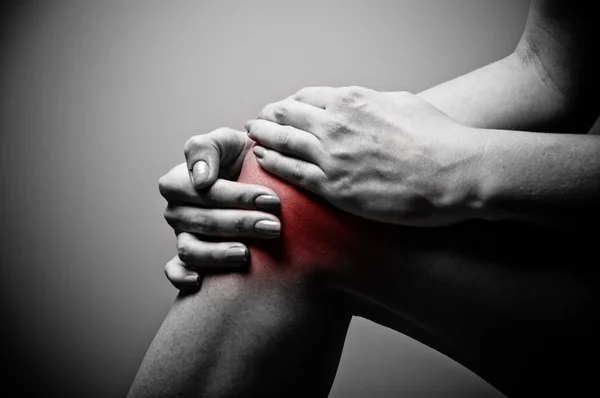Knee pain, a common affliction that affects people of all ages, can be incredibly discomforting and debilitating. It can stem from various causes, such as injuries, arthritis, overuse, or age-related wear and tear. If you’re grappling with knee pain, you’re not alone. The good news is that there are several effective home remedies to alleviate knee pain that can provide relief and help you regain your mobility. In this comprehensive guide, we will explore these remedies and shed light on how you can manage and reduce knee pain from the comfort of your home.
Understanding Knee Pain
Before delving into the remedies, it’s crucial to have a basic understanding of knee pain and its underlying causes. The knee joint, one of the largest and most complex joints in the human body, plays a pivotal role in supporting our weight and facilitating various movements. It comprises bones, cartilage, ligaments, and tendons, all working in harmony. When any of these components are compromised or injured, it can result in knee pain.

Knee pain can manifest in different ways, from a dull ache to sharp, stabbing sensations. It might be accompanied by swelling, stiffness, or a reduced range of motion. Now, let’s explore some of the most effective home remedies to alleviate knee pain:
1. RICE Therapy
RICE stands for Rest, Ice, Compression, and Elevation. It’s a fundamental first-aid approach that can be highly effective in managing knee pain, especially if it’s due to an injury. Here’s how to apply RICE therapy:
- Rest: Give your knee a break. Avoid activities that put a strain on the affected knee.
- Ice: Apply ice to the painful area for 15-20 minutes every few hours. This can help reduce swelling and numb the pain.
- Compression: Use an elastic bandage to provide gentle compression to the knee. Ensure it’s not too tight to avoid cutting off circulation.
- Elevation: Keep your leg elevated whenever possible to minimize swelling.
2. Turmeric
Turmeric, a bright yellow spice commonly found in Indian cuisine, contains a compound called curcumin, which has potent anti-inflammatory properties. You can incorporate turmeric into your diet or apply it topically to your knee to reduce inflammation and pain. A simple turmeric paste can be made by mixing turmeric powder with water and applying it to the affected area.
3. Epsom Salt Soaks
Epsom salt, rich in magnesium, can help relax muscles and alleviate knee pain. Fill a basin with warm water and add a cup of Epsom salt. Soak your knee in this solution for 15-20 minutes to relieve discomfort.
4. Gentle Knee Exercises
While rest is essential for recovery, it’s equally important to engage in gentle knee exercises to prevent stiffness and maintain flexibility. Exercises like quadriceps sets and straight leg raises can strengthen the muscles around the knee, providing better support.
5. Cold and Hot Compress Alternation
Alternating between cold and hot compresses can be remarkably effective in reducing knee pain. Start with a cold compress for 15 minutes to reduce inflammation, then follow it with a warm compress for 15 minutes to relax and loosen the muscles.
6. Ginger Tea
Ginger, renowned for its anti-inflammatory properties, can be brewed into a soothing tea. Simply steep fresh ginger slices in hot water and drink this concoction regularly to combat knee pain from within.
7. Maintain a Healthy Weight
Excess body weight can put undue stress on your knee joints, exacerbating pain. Maintaining a healthy weight through a balanced diet and regular exercise can significantly alleviate knee pain.
8. Essential Oils
Certain essential oils, such as lavender and eucalyptus, possess analgesic and anti-inflammatory properties. Dilute a few drops of your chosen essential oil in a carrier oil, like coconut or jojoba oil, and massage it gently onto your knee.
9. Acupuncture
Consider seeking the expertise of an acupuncturist. Acupuncture involves the insertion of fine needles into specific points on the body, stimulating natural pain relief mechanisms and promoting healing.
10. Collagen Supplements
Collagen, a protein that supports joint health, can be taken as a supplement. It may help improve the strength and integrity of the cartilage in your knee joint.
Precautions and When to Seek Medical Help
While these effective home remedies to alleviate knee pain can be beneficial, it’s important to exercise caution and consult a healthcare professional if your knee pain:
- Persists or worsens over time.
- Is accompanied by severe swelling or redness.
- Results from a significant injury.
- Interferes with your daily activities and quality of life.
In some cases, knee pain may require more advanced medical intervention, such as physical therapy, corticosteroid injections, or even surgery.
Conclusion
Knee pain can be a formidable adversary, but armed with the knowledge of these effective home remedies to alleviate knee pain, you can take steps to manage and mitigate discomfort. Remember that individual responses to these remedies may vary, so it’s essential to be patient and consistent in their application. Additionally, maintaining a healthy lifestyle through regular exercise, a balanced diet, and weight management can go a long way in preventing knee pain in the first place.
Ultimately, your knee health is a crucial aspect of your overall well-being. By incorporating these remedies into your routine and seeking professional guidance when needed, you can work towards a pain-free, active, and fulfilling life.







2 comments
Comments are closed.